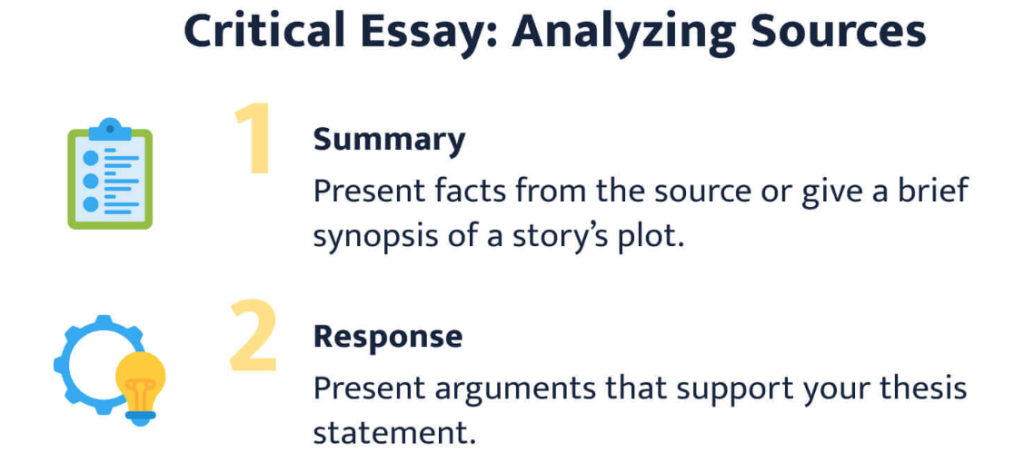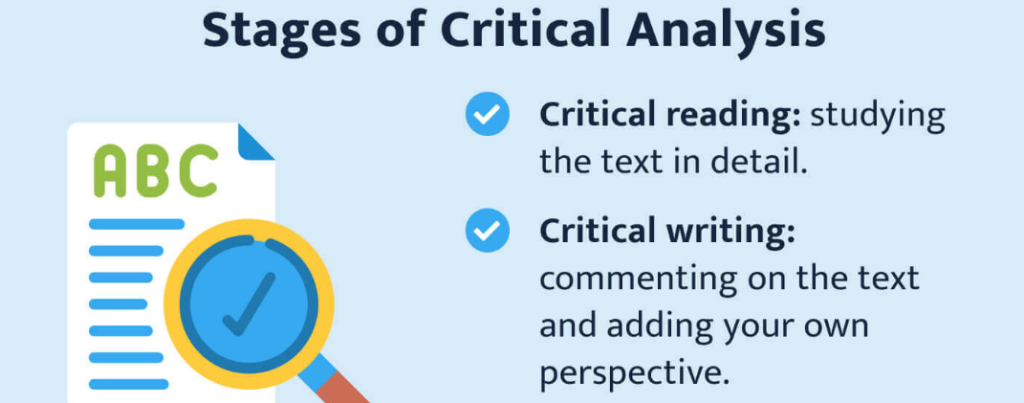
Table of Contents
The critical analysis nursing paper is a staple in nursing education, serving as a platform for students to demonstrate their understanding of complex concepts, evaluate evidence-based practices, and articulate informed opinions. Mastering this genre requires more than just summarizing information – it demands critical thinking, insightful analysis, and clear communication.
This article will provide a comprehensive guide on how to write a stellar critical analysis nursing paper, addressing each stage of the process from choosing a topic to polishing the final draft.
Understanding the Purpose of a Critical Analysis Nursing Paper
Before diving into the mechanics of writing, it’s crucial to understand the underlying purpose of a critical analysis nursing paper. It’s not simply about regurgitating facts or summarizing existing research. Instead, it requires you to:
- Examine a chosen topic or issue within the nursing field. This might involve exploring a specific nursing practice, a new medical technology, a policy change, or a pressing ethical dilemma.
- Analyze the available evidence surrounding the topic. This involves critically evaluating research findings, clinical guidelines, professional standards, and relevant literature.
- Formulate your own informed opinion based on the evidence. This means going beyond simply presenting facts to synthesize the information and draw meaningful conclusions.
- Communicate your analysis in a clear, concise, and well-structured manner. This ensures your reader understands your arguments and the reasoning behind your conclusions.
Step-by-Step Guide to Crafting a Critical Analysis Nursing Paper
1. Choosing a Topic for Your Critical Analysis Nursing Paper
Selecting a compelling topic is the first step towards writing a successful critical analysis nursing paper. Here are some strategies to help you choose:
- Reflect on your coursework: What concepts or topics have sparked your curiosity or challenged your understanding?
- Consult your professors or mentors: Ask them for suggestions or areas of current research within the nursing field.
- Browse professional journals: Look for articles or studies that raise interesting questions or address controversial issues.
- Consider current events: Are there any recent healthcare news stories that relate to your field of study?
2. Conducting Thorough Research for Your Critical Analysis Nursing Paper
Once you have a topic, the next step is to conduct thorough research. This involves:
- Identifying relevant sources: This may include peer-reviewed journal articles, professional guidelines, clinical practice standards, reputable websites, and textbooks.
- Evaluating the credibility of your sources: Ensure the information you gather comes from reliable and unbiased sources. Look for sources that are current, peer-reviewed, and relevant to your chosen topic.
- Taking meticulous notes: Record all relevant information from your sources, including the author, publication date, and key findings.
3. Developing a Strong Thesis Statement for Your Critical Analysis Nursing Paper
A strong thesis statement is the backbone of a critical analysis nursing paper. It clearly and concisely states your main argument or perspective on the chosen topic. A good thesis statement should be:
- Specific and focused: It should clearly outline the specific aspect of the topic you will analyze.
- Arguable: It should present a unique perspective or claim that requires supporting evidence.
- Clearly stated: It should be readily identifiable and easy to understand.
4. Organizing Your Critical Analysis Nursing Paper
A well-structured critical analysis nursing paper will make your arguments clear and persuasive. A common organizational framework includes:
- Introduction: This section introduces the topic, presents the thesis statement, and briefly outlines the main points you will discuss.
- Body Paragraphs: Each body paragraph should focus on a specific aspect of your analysis. Each paragraph should begin with a topic sentence, present evidence from your research, and explain how this evidence supports your thesis.
- Counterarguments: Address potential counterarguments or alternative perspectives to demonstrate a comprehensive understanding of the topic.
- Conclusion: Summarize your key findings and restate your thesis statement. Offer a concluding thought or recommendation based on your analysis.

5. Writing with Clarity and Objectivity
Effective communication is crucial in any academic writing, particularly when writing a critical analysis nursing paper. Aim for clarity, objectivity, and a professional tone throughout your writing. Consider these tips:
- Use clear and concise language: Avoid jargon or technical terms unless they are necessary and defined for the reader.
- Support your claims with evidence: Every argument you make should be backed up with specific examples or research findings.
- Be objective in your analysis: Avoid emotional language or subjective opinions. Present both sides of the issue fairly and objectively.
- Pay attention to grammar and mechanics: Proofread carefully to ensure your paper is free from grammatical errors and typos.
6. Using Critical Thinking Skills to Analyze Evidence
The heart of a critical analysis nursing paper lies in your ability to critically analyze the evidence you gather. This involves:
- Identifying the strengths and limitations of research studies: Consider the methodology, sample size, and potential biases in the studies you review.
- Evaluating the quality of evidence: Assess the level of evidence (e.g., randomized controlled trials vs. observational studies) and determine its relevance to your topic.
- Identifying potential conflicts of interest: Consider the funding sources and potential biases of the authors and organizations involved.
- Drawing informed conclusions based on the evidence: Carefully synthesize the information you have gathered to arrive at your own conclusions.
7. Incorporating Different Perspectives in Your Critical Analysis Nursing Paper
A well-rounded critical analysis nursing paper considers different perspectives and approaches to the chosen topic. This can include:
- Examining the ethical implications of the issue: How does the chosen topic impact patient care, ethical principles, and societal values?
- Exploring different cultural contexts: How does the topic relate to different cultures and healthcare systems?
- Considering the viewpoints of various stakeholders: This could include patients, nurses, doctors, healthcare administrators, and policy makers.
8. Refining Your Critical Analysis Nursing Paper
Once you have completed a draft, take time to revise and edit your paper. Consider these strategies:
- Read your paper aloud: This will help you identify awkward phrasing or unclear passages.
- Get feedback from peers or mentors: Ask others to review your paper and provide constructive feedback.
- Check for grammar and mechanics errors: Use spell check and grammar check tools, but also proofread carefully to ensure accuracy.
- Ensure consistent formatting and citation style: Follow the specific guidelines provided by your instructor or program.
Example of a Critical Analysis Nursing Paper
Here is an example of a thesis statement and supporting argument for a critical analysis nursing paper on the use of technology in patient care:
Thesis statement: While technology can be a valuable tool in providing high-quality patient care, its implementation must be carefully considered to ensure patient safety, privacy, and ethical use.
Supporting argument: One specific technology that raises ethical concerns is the use of wearable health trackers in clinical settings. While these devices can potentially improve patient monitoring and early detection of health issues, they also raise concerns about patient privacy, data security, and the potential for misuse. Recent research has shown that patients may not fully understand the implications of sharing their personal health data through these devices. Additionally, healthcare providers need to be trained on how to effectively interpret and utilize the data generated by these trackers to avoid misinterpretations and potential harm to patients.
Navigating the Common Pitfalls in Critical Analysis Nursing Papers
A critical analysis nursing paper demands more than simply summarizing a chosen article. It requires you to delve deeper, dissecting its arguments, evaluating its methodology, and ultimately drawing informed conclusions. While challenging, crafting a successful critical analysis nursing paper can significantly enhance your understanding of the subject matter and refine your analytical skills. However, several common pitfalls can hinder the quality of your paper.
Pitfall 1: Lack of Clear Focus and Argument:
One of the most frequent errors in critical analysis nursing papers is a lack of a clear thesis statement or argument. Without a strong foundation, your paper risks becoming a mere summary or a collection of disparate points. To avoid this pitfall, ensure your critical analysis nursing paper clearly articulates your argument, answering a specific research question. This question should be directly related to the chosen article and guide your analysis. For example, your argument could focus on the strengths and limitations of the study’s methodology, the relevance of the findings to current nursing practice, or the ethical implications of the research.
Pitfall 2: Insufficient Evidence and Support:
A strong critical analysis nursing paper must be backed by robust evidence and reasoning. A common pitfall is relying solely on personal opinions or anecdotal evidence. Instead, meticulously support your arguments with evidence from the chosen article, reputable scholarly sources, and relevant nursing literature. This includes citing specific examples, data points, and research findings that support your analysis.

Pitfall 3: Failure to Critically Analyze the Chosen Article:
While summarizing the chosen article is necessary, a critical analysis nursing paper demands more. Avoid simply rehashing the article’s content; instead, go beyond the surface level. Critically examine the methodology, data analysis, conclusions, and potential biases present in the study. Consider the strengths and limitations of the research design, the quality of data collection, and the validity of the findings.
Pitfall 4: Neglecting the Broader Context:
It’s vital to consider the chosen article’s context within the broader field of nursing knowledge. A successful critical analysis nursing paper should address the article’s implications for current nursing practice, its alignment with existing research, and potential future research directions. Connecting the chosen article to relevant nursing theories, ethical considerations, and policy implications adds depth and significance to your analysis.
Pitfall 5: Weak Organization and Structure:
A disorganized and poorly structured critical analysis nursing paper hinders its effectiveness. Employ a logical structure to guide the reader through your analysis. Clearly define the research question, present your argument, and support it with evidence. Use headings and subheadings to break down complex information and make your paper easier to navigate. Ensure smooth transitions between sections to maintain a coherent flow.
Pitfall 6: Improper Citation and Referencing:
Adherence to proper citation and referencing is crucial for academic integrity and clear communication. Failing to properly cite sources can lead to plagiarism, a serious academic offense. Ensure your critical analysis nursing paper meticulously cites all sources using the chosen referencing style (e.g., APA, MLA). Maintain consistency in your citations throughout the paper.
Avoiding Pitfalls: Tips for Success
- Start Early and Plan: Allocate ample time for research, analysis, and writing. Develop a detailed outline to guide your process and ensure a coherent flow of arguments.
- Choose a Suitable Article: Select an article that aligns with your interests and provides sufficient scope for critical analysis. Ensure the article is relevant to your chosen field of nursing and has a clear research question and methodology.
- Read Critically and Take Notes: Actively engage with the chosen article by highlighting key arguments, noting strengths and limitations, and identifying potential biases. Take detailed notes to support your analysis and avoid relying solely on memory.
- Seek Feedback: Share your draft with peers, instructors, or mentors to get feedback and improve your critical analysis nursing paper. Seek constructive criticism on your arguments, evidence, structure, and overall clarity.
- Refine and Polish: Once you have received feedback, carefully revise your paper, addressing any weaknesses identified. Ensure clarity, conciseness, and a polished writing style. Proofread thoroughly to catch any errors in grammar, spelling, and punctuation.
Writing a critical analysis nursing paper requires careful planning, thorough research, and critical thinking. By avoiding common pitfalls and following the strategies outlined above, you can produce a high-quality paper that demonstrates your understanding of the chosen subject matter and strengthens your analytical skills. Remember, a well-crafted critical analysis nursing paper is not merely a summary; it is a thoughtful and insightful examination of the research, contributing to the ongoing dialogue within the nursing field.
Frequently Asked Questions about Critical Analysis Nursing Paper
The critical analysis nursing paper can be a daunting task for many students. It requires a deep understanding of the chosen topic, the ability to synthesize information from various sources, and the skill of presenting a clear and compelling argument. These are some of the most frequently asked questions about critical analysis nursing papers and how to navigate them.
1. What is a critical analysis nursing paper?
At its core, a critical analysis nursing paper is a research-based essay that examines a specific topic within the nursing field, dissecting its strengths and weaknesses, and ultimately presenting a well-supported, balanced argument. It’s not simply a summary of existing research; it’s a critical evaluation of the chosen topic’s impact, limitations, and potential applications in nursing practice.
2. What are the essential elements of a critical analysis nursing paper?
A strong critical analysis nursing paper typically includes:
- A clear and focused research question: This guides the entire paper and shapes the analysis.
- A comprehensive literature review: This section summarizes and analyzes relevant studies and theories, providing a foundation for your analysis.
- A critical analysis of the chosen topic: This is the heart of the paper, where you dissect the topic’s strengths, limitations, and implications for nursing practice.
- A clear and concise argument: You must present a well-supported, logical argument based on your analysis.
- Conclusion and recommendations: This section summarizes your findings and offers recommendations for future research or practice.
3. How can I choose a suitable topic for my critical analysis nursing paper?
Selecting the right topic is crucial for a successful critical analysis nursing paper. Consider your interests, strengths, and the current trends within the nursing field. Look for topics that allow for a balanced analysis, with both positive and negative aspects to explore. Remember, a strong topic will inspire your research and lead to a compelling and engaging paper.
4. Where can I find reliable resources for my critical analysis nursing paper?
Your search for resources should be focused on reputable academic sources like peer-reviewed journals, books, and professional organizations. Explore databases like PubMed, CINAHL, and Google Scholar for relevant research articles.
5. How can I ensure my critical analysis nursing paper is well-written and engaging?
Writing a clear and engaging critical analysis nursing paper requires careful planning and execution:
- Structure: Utilize a logical structure with clear headings and subheadings.
- Clarity and Conciseness: Write in a clear, concise, and objective style, avoiding jargon and technical terms.
- Evidence-based analysis: Support your claims with strong evidence from your literature review and other reliable sources.
- APA Style: Follow APA format for referencing and citing your sources.
6. What are some common mistakes to avoid in my critical analysis nursing paper?
- Lack of focus: Ensure your paper focuses on the chosen topic and research question.
- Insufficient analysis: Go beyond summarizing the literature and critically evaluate the research and its implications.
- Weak arguments: Ensure your arguments are logical, well-supported, and relevant to the topic.
- Poor formatting and referencing: Follow APA guidelines for formatting and referencing to maintain academic integrity.
By addressing these common questions and focusing on the key elements of a critical analysis nursing paper, you can approach this assignment with confidence and produce a strong, insightful, and impactful paper. Remember, the journey of writing a critical analysis nursing paper is a learning process, and with careful planning, research, and writing, you can achieve academic success and contribute valuable insights to the nursing field.

Concluding Thoughts
Writing a critical analysis nursing paper can be challenging, but it’s a rewarding exercise in developing essential critical thinking skills. By following these steps, you can create a well-researched, insightful, and well-written paper that demonstrates your understanding of complex nursing concepts and your ability to analyze evidence and articulate your own informed opinions.
Remember, the critical analysis nursing paper is not just an academic assignment but a valuable opportunity to explore emerging trends, challenge existing practices, and contribute to the ongoing development of the nursing profession. Embrace the challenge, hone your critical thinking skills, and write a paper that reflects your commitment to providing safe and ethical care to your patients.
Get Professional Nursing Paper Writing Service
At Nursing Papers, we can help you to craft authentic and impactful nursing papers. Our service covers topic suggestion, paper writing, proofreading, editing, formatting and plagiarism removal. Engage our experts today for help with writing essays, research papers, case studies and dissertations.







